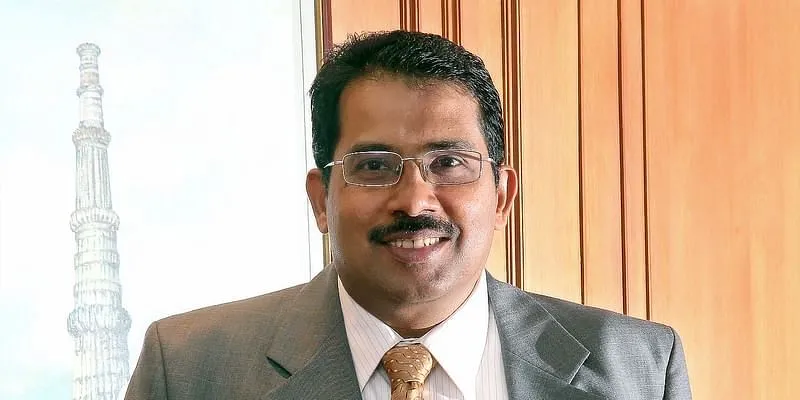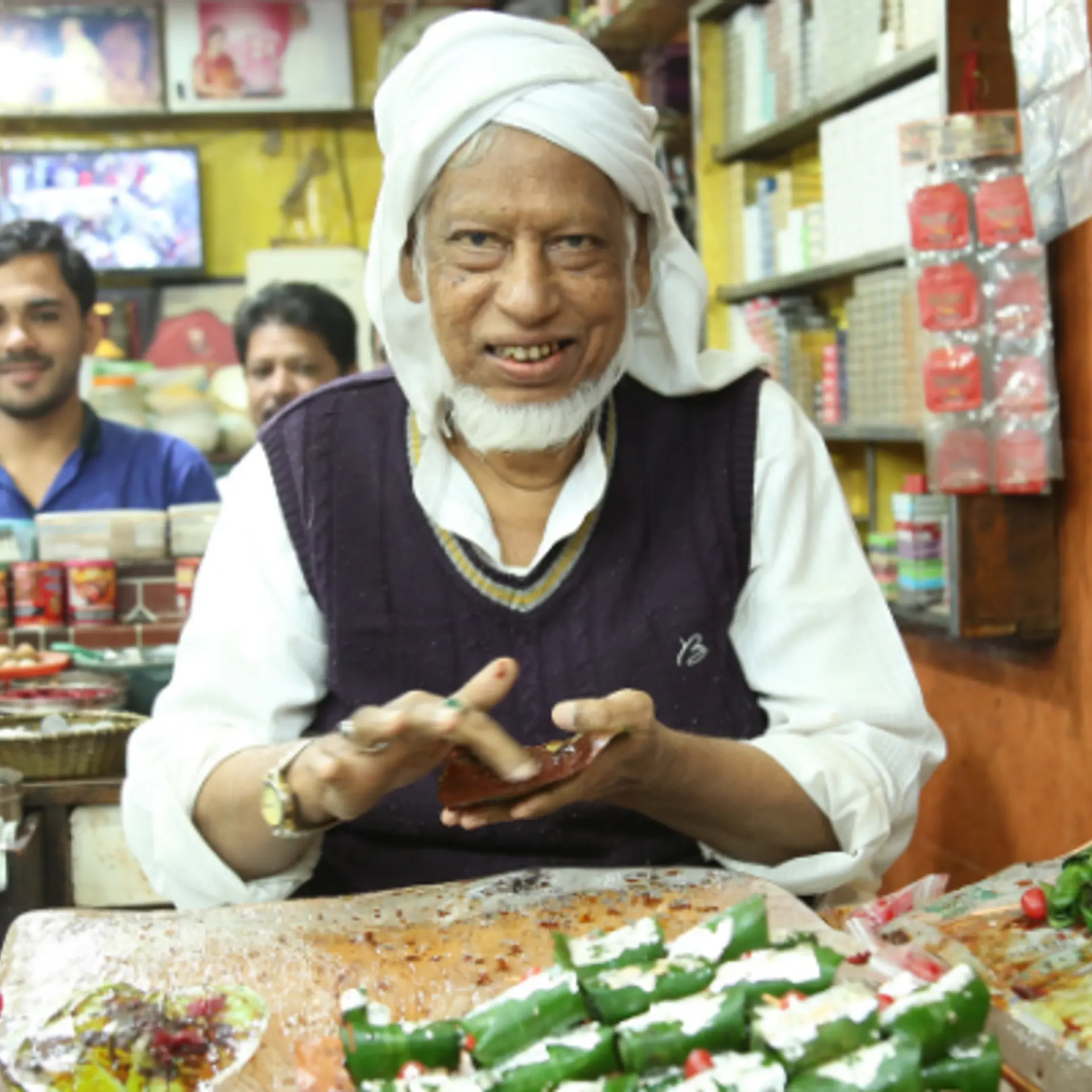Muthoot Finance’s gold story: From ‘ek locker se dusre locker’ to your doorstep
George Alexander Muthoot, Managing Director, Muthoot Finance, speaks about the Kochi-based company’s journey, and how it addresses the taboo around gold loans.
Most Indians tend to buy gold in the jewellery form and typically take a lot of pride in owning it. The act of pawning gold for cash has traditionally been looked at as something that tends to hurt one’s pride. Kochi-based , the world’s largest gold financing company, knew it was important to address this taboo and eliminate the so-called shame and embarrassment surrounding gold loans.
“They (customers) were reluctant at first. They thought it was below their status and dignity to pledge their ladies’ gold. But we actually told them -- (it’s just) ‘ek locker se dusre locker’ (from one locker to another). So you keep it in our locker which is insured, and you can do it without having to go and borrow from friends and relatives,” says George Alexander Muthoot, Managing Director, Muthoot Finance, during an early August interaction with Founder and CEO Shradha Sharma. He was explaining how the company urged customers to come on board to avail gold loans safely and securely, whenever they were in need of some liquidity.
George further explains that gold is a high-potential commodity which mostly tends to sit idle in people’s lockers. In times of need, it is a very handy asset to go to for availing small loans, he says. For its customers, Muthoot became a platform that was not only providing gold loans and an insured locker for its safe-keeping, but was also helping replace the informal lenders, who charge interest rates as high as 50 percent. Muthoot Finance charges 12 percent interest on its gold loans.
According to consultancy firm KPMG, 65 percent of India’s $46 billion gold loan industry is dominated by informal lenders, whose interest rates typically range from 25 percent to 50 percent.

George Alexander Muthoot, MD, Muthoot Finance
The trust factor
George highlights that the business of gold loans is based solely on trust. “Somebody is giving us Rs Rs 1 lakh worth of gold and is actually taking a loan of Rs 50,000 or Rs 60,000 from us. So who needs to be trusted more? People need a reliable company that takes care of their property and gives it back without damaging it,” he says.
According to the World Gold Council’s gold retail market insights 2019, about 75 percent of Indians trust gold more than currencies.
As much as 75 percent of Muthoot Finance’s customers are small businesses, traders, and shopkeepers. These are people who have been among the worst affected by the coronavirus crisis. The stress of the pandemic made several small businesses crumble. Many were and have been in dire need of loans to either kick-start their businesses or to pay salaries, or to simply buy inventory, According to George, the yellow metal became the saviour for many during this phase, as they got the much-needed liquidity through gold loans, as cash inflow dried up.
Navigating the pandemic
George points out that 2020 is mirroring the 2008 global financial crisis, as far as gold is concerned. “Today there is international financial instability. People are not comfortable about what will happen to the dollar, to the euro. And countries are now starting to import gold. If you look at India, we are not importing gold for jewellery, it is for investment purposes… Countries and institutions are now investing in gold and its price is going up,” he says explaining the current global scenario.
In 2008, during the global financial crisis gold prices went up significantly, the same trend is being seen now in 2020 as the global economy once again faces uncertainty amidst the pandemic. Gold prices have jumped over 50 percent to $1,900 per ounce since May 2019 when it stood at around $1,250 per ounce. In India, during this period, the prices have jumped over 60 percent to around Rs 52,000 per 10 gm from Rs 32,000 per 10 gm.
While the current scenario may have made it difficult for most working-class families in India to invest in gold right now, at least, they are able to now avail a higher loan against the gold they hold. Last month, the RBI (Reserve Bank of India) relaxed gold lending norms, allowing lenders to disburse up to 90 percent (earlier it was 75 percent) of the value of the gold pledged as loans.
Watch the full interview here:
Loans made easy
Muthoot Finance’s average loan ticket size is a little over Rs 50,000, and a majority of its customers are small borrowers who are not tech-savvy. To plug the tech gap, the company actively reached out to its customers and mapped their bank accounts, allowing them to transact their loans and pay EMIs (equated monthly installments) during the lockdown. It mapped about 10 lakh accounts.
While only a handful of customers used the online feature before the pandemic, the number of online users has grown four-fold in recent months, George says. However, people still had to visit a Muthoot branch to deposit and collect their jewellery. To solve this, Muthoot came up with a new initiative in July called ‘Loan at Home,’ where the company’s representatives visit the customer at their home. They check and weigh the gold, seal and collect it, and transfer the loan amount to the customer’s account. The scheme is available in Bengaluru, Chennai, and Hyderabad.
For Muthoot, if the gold is 98 percent accurate to the standards, it is sufficient to avail loans, as it is simply keeping the commodity as collateral, says George. He calls the company an “aam log (common people) company,” which serves close to 70 to 80 lakh accounts.
Muthoot provides annual loans, and a majority of them are closed in four to five months. Of those which go beyond a year, the company still provides a little extra time to repay, since the next option would be to auction the gold. “We carry it in our books as non-performing assets (NPAs) because I am 100 percent sure that I am not going to lose that money. So, if I give him some more time to repay the loan and take back their ornament, they will be very happy.
“If I auction the gold and realise my money, my NPAs will be zero, but my customers’ comfort will not be there,” he says. However, if the money still doesn’t return, the company auctions one percent of the gold, George adds.
A lender from pre-Independence era
Muthoot Finance was incorporated in 1939 by the Late M George Muthoot in Kerala. The company wanted to become a pioneer in disbursing small gold loans to its customers in the state, who have traditionally been known to hold a significant amount of gold.
Over the years, formal lending against gold has become fairly common, as banks and NBFCs (non-banking finance companies) too have their own schemes.
But George doesn’t mind the competition as he believes that it will open up the gold loan market in India. According to a KPMG report, India's gold loan market is expected to reach Rs 4.6 lakh crore by 2022 at a five-year compounded annual growth rate of 13.4 percent. On the other hand, the size of the unorganised gold loan sector — estimated to be three times the size of the organised sector — may imply significant growth potential, which is actively being encroached upon by financial services players that offer unsecured loans, the report adds.
Muthoot calls itself a ‘financier of gold ornaments,’ and does not finance bullions or gold biscuits. It went public by listing itself on the National Stock Exchange (NSE) and Bombay Stock Exchange (BSE) in 2011. The company has over 5,330 branches in India, with a global footprint across the US, the UK, UAE, Central America, Sri Lanka, and Nepal.
Edited by Ramarko Sengupta









